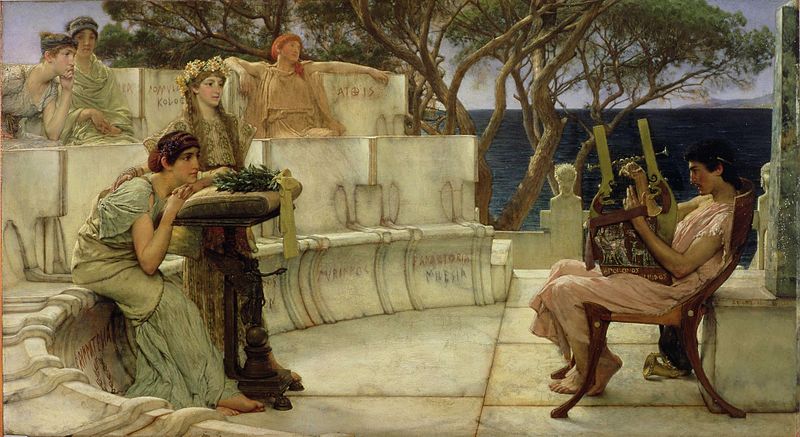Um, oops. Got so steamed by shoddy science on the teevee that I forgot poetry. So, uh, yeah. Pretend this got posted yesterday, would ye?
Poetry is usually quite serious business, but there’s nothing in the rules saying you can’t be silly. Sometimes, you’ve got to play with your poetry just like you play with your food.
Speaking of food, here’s a little something from Peg Spencer of the Dread Poet’s Society:
About exotic foods
Pickled eggs I’ve had, and worse
The thought of frog legs makes me pursemy lips and gag, but I would try
a fresh polk salad, loaf of rye,some crab legs, sushi (only cooked!
I’m a doc, you know, I lookedbeneath the scope, I did, and ugh
what I saw would make a slugchuck up his breakfast, so no raw
fish for me), a monkey’s pawis taking it too far as well.
I’d like a fondue, that’s a smellthat makes me smile, and want to dip
a cube of bread, then take a sipof Chardonnay, oops there I am
back at wine! alright, then, ham,but only finest prosciuttos
will make it past my snobby noseChinese I’ll eat (the food, I mean)
Italian, Spanish, French cuisineHillbilly with okra pie
Better than a stick in your eyeBut ask me to avoid Whole Foods?
That goes too far, sir, almost rude!That place is home, my second larder
Quit I won’t, I’d fight much harderFor organic foods and fresh ones
even though it uses up fundsCheap it ain’t: just ask Cheapskate
Still its always worth the waitDon’t believe me? Come for dinner
You don’t like it? You’ll leave thinnerUh oh, wait a minute, what’s this?
I can’t stop creating bupkissRhyme’s Disease has taken over
Get the hook! I’m done! It’s over.
Great. Now I’m hungry. And with this cat on my lap, starvation or involuntary amputation are my only two options. Nothing for it but to peruse SillyPoems.co.uk:
attraction
by Andy Curtis
I can’t believe how attractive you are.
From the outset, we just clung together
Like reunited lovers
There’s always such a buzz when you’re around
And what’s that aroma?
It’s strangely familiar.You hold me – tighter, if anything,
And I simply can’t let go.
You make the hairs on the back of my neck stand up
You make all the other ones stand up too
And you’re hot – so amazingly hot!
I can’t even manage to ask for what I really want –
Like, for the electric to be switched off.




